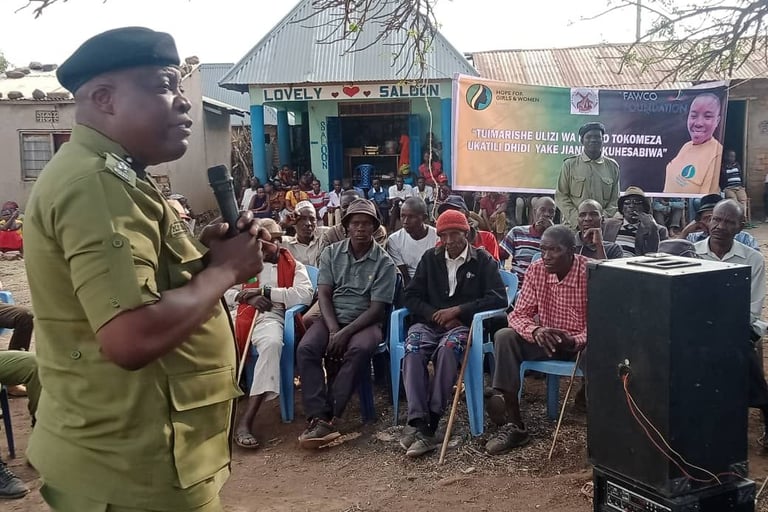Family Reconciliation
The Goal:
Families Who Protect Their Daughters
Working with Communities
Alternative Ceremonies
Hope works with traditional leaders, religious leaders, village officers, fathers, mothers, and community members to create change. This includes engaging men who will be future fathers and women's groups throughout the community.
After the cutting season is over there is a period of reconciliation with the girls' families, who are educated about the dangers of FGM, their daughter's right not to be cut and to continue with her education, as well as the legal consequences of breaking the law by cutting her.
Most parents then sign an affidavit saying they will not cut her and the girl is returned home.
The ultimate success is when families choose to protect their daughters from FGM. Hope's approach focuses on educating families about the dangers of FGM and working toward reconciliation whenever possible.
The Education Process
Rather than eliminating traditions, Hope helps communities develop alternative ceremonies that preserve positive cultural elements while removing harmful cutting. These ceremonies allow communities to maintain their traditions of celebrating girls' transition to womanhood without the dangerous practice of FGM.
When Reconciliation Isn't Safe
In some cases, the families refuse to sign agreements, or the Hope staff and social welfare don't trust them not to cut the girl. So they remain at Hope, either going to school and into further education or learning a skill like tailoring to make a living.
Ongoing Support
After reconciliation, Hope maintains contact with families to ensure girls remain safe and continue their education.



Serengeti District Official Commander
Mr Mathew Mgema talking to families
Copyright © 2025 hopeforgirlsandwomenfrance.com
